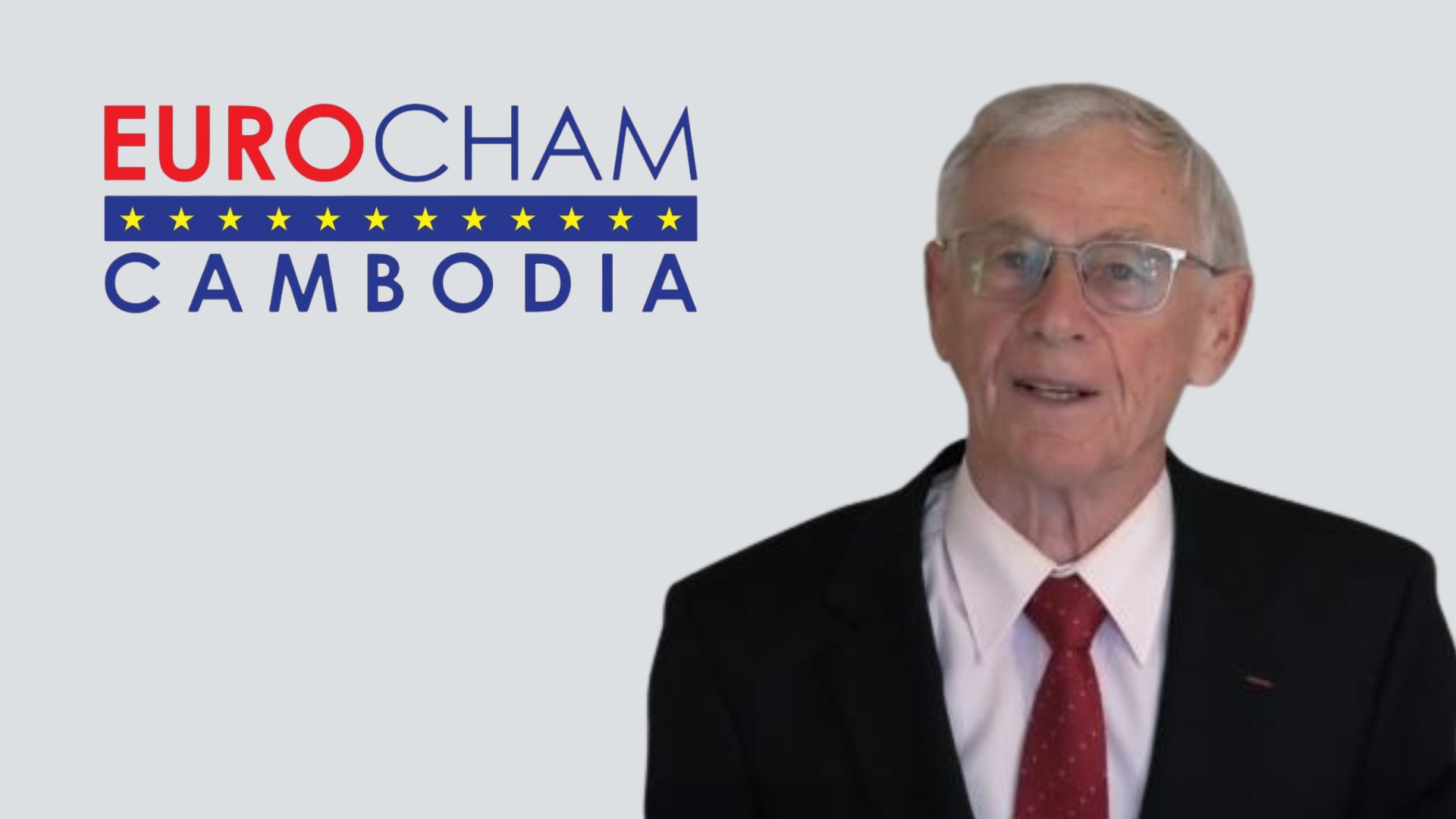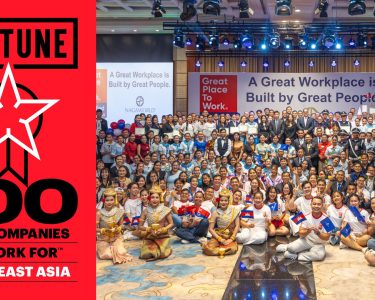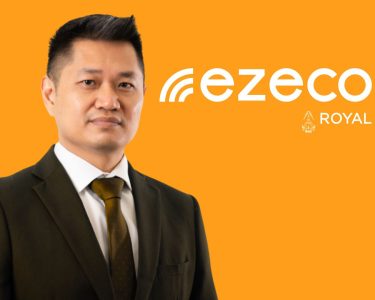Stew Post
With the Chamber celebrating 15 years of operations, connections, and advocacy, Senior Communications Officer Stew Post spoke with Dominique Catry, co-founder of EuroCham Cambodia.
A dynamic entrepreneur whose businesses have become household names in Camboda, the conversation explored his journey in the Kingdom, EuroCham’s early challenges and achievements, and where he hopes to see the Chamber in the future.
Stew: You were a founder of EuroCham Cambodia 15 years ago. What brought you to Cambodia and what have you been up to in the intervening years?
Dominique: I first arrived in Cambodia in 1965 to join my parents and complete my national service as a teacher. I then began my professional career as an engineer with Comin Khmere. After the Khmer Rouge period, I returned to Phnom Penh and re-established the Comin Asia Group, which expanded to Singapore, Vietnam, and Thailand. I later sold the group after 20 successful years.
Since then, I have invested in a range of sectors, including the manufacturing and distribution of electrical equipment (ATS), health and beauty care (Ucare Pharmacies), e-commerce, veterinary clinics, and waste management, among others.
Leading A Committee To Establish EuroCham Cambodia
Stew: What was the motivation behind organising EuroCham? Were there any specific anecdotes that served as a catalyst for the formation of the Chamber?
Dominique: In 1998, I was one of the founders of the French Business Club, which I later transformed into the French Chamber of Commerce in 2001, during my time as Chairman. I was also active in Vietnam, where EuroCham had been created in 1998. In 2010, within the CCIFC, I proposed leading a committee to establish EuroCham Cambodia.
We reached out to other European business clubs — including Tassilo Brinzer (Germany) and Matthew Rendall (UK) — who enthusiastically supported the initiative. We quickly gained the backing of EuroCham Vietnam, the EU Delegation in Cambodia, and the Ministry of Commerce.
Stew: What were the most significant challenges faced during the formation of EuroCham? How were you and the co-founders able to overcome these challenges?
Dominique: We faced several major challenges. First, we hoped to merge the existing European business organisations under EuroCham, which sparked some controversy. Ultimately, we agreed to maintain the national chambers and split responsibilities between them and EuroCham.
On June 2, 2011, we celebrated the official launch of EuroCham under the patronage of H.E. Cham Prasidh. To our surprise, in his opening speech, His Excellency announced that EuroCham would host the EU-ASEAN Business Forum in early 2012. At the time, we had no staff, no funding, and no experience organising such a large-scale event. After an initial moment of panic, we secured support from the EU Delegations in Cambodia and Thailand for staffing and financing and received valuable guidance from EuroCham Vietnam. The event ultimately drew over 400 participants from Europe and across the region — a true success.
Another key challenge was securing the funding needed to operate and expand EuroCham’s activities. Thanks to the strong support of EU Ambassador Jean-François Cautain, we successfully applied for ICI+ project funding from the EU. In 2014, we were awarded over €3 million for a six-year program.
Stew: From the evolving skyline to a dynamic business landscape, Cambodia’s transformation over the past 15 years has been dramatic. What have been some of the most significant changes that you have witnessed since EuroCham’s establishment?
Dominique: Cambodia today is a completely different country from what it was 15 years ago. The transformation has been remarkable across all sectors — infrastructure, health, education, industry, and more.
To me, the most striking development is the rise of a highly capable younger generation. (Given that I am 84, I define “young” as those between 25 and 40.) In both the public and private sectors, we now see strong leadership from well-qualified and experienced Cambodians. Another major area of progress has been technology, which has evolved at an incredible pace.
Supporting European Enterprises
Stew: Looking ahead, what do you feel are the most pressing challenges and promising opportunities for businesses operating in Cambodia? Why do you think having an organisation like EuroCham is important in supporting European enterprises in navigating this landscape?
Dominique: The main challenge ahead remains human capital. Cambodia needs to accelerate its transition towards an industry that generates higher local value-added, which requires significant investment in workforce development and skills training.
Equally important is improving the transparency and clarity of administrative rules and procedures. The government must view private companies as partners, not subordinates.
EuroCham plays a critical role in raising and addressing key issues at the government level — for example through its White Book. Going forward, EuroCham could also deepen its involvement in workforce development and capacity-building programs.
I hope my son Pascal, CEO of Ucare Pharmacies and VP of the CCIFC will continue to contribute to the activities and development of EuroCham.
Stew: With an extensive career and experience in Cambodia – and internationally – what is one piece of advice you would give to entrepreneurs looking to start a business in the Kingdom?
Dominique: Cambodia today is a very different environment from the one I experienced when I started my own business. New entrepreneurs must bring innovation to the market — with fresh ideas, concepts, and technologies. Competing with established traditional businesses is unlikely to succeed.
Another key piece of advice: secure the ongoing support of an experienced Cambodian adviser. They will help you better understand the local culture and navigate administrative processes effectively.





